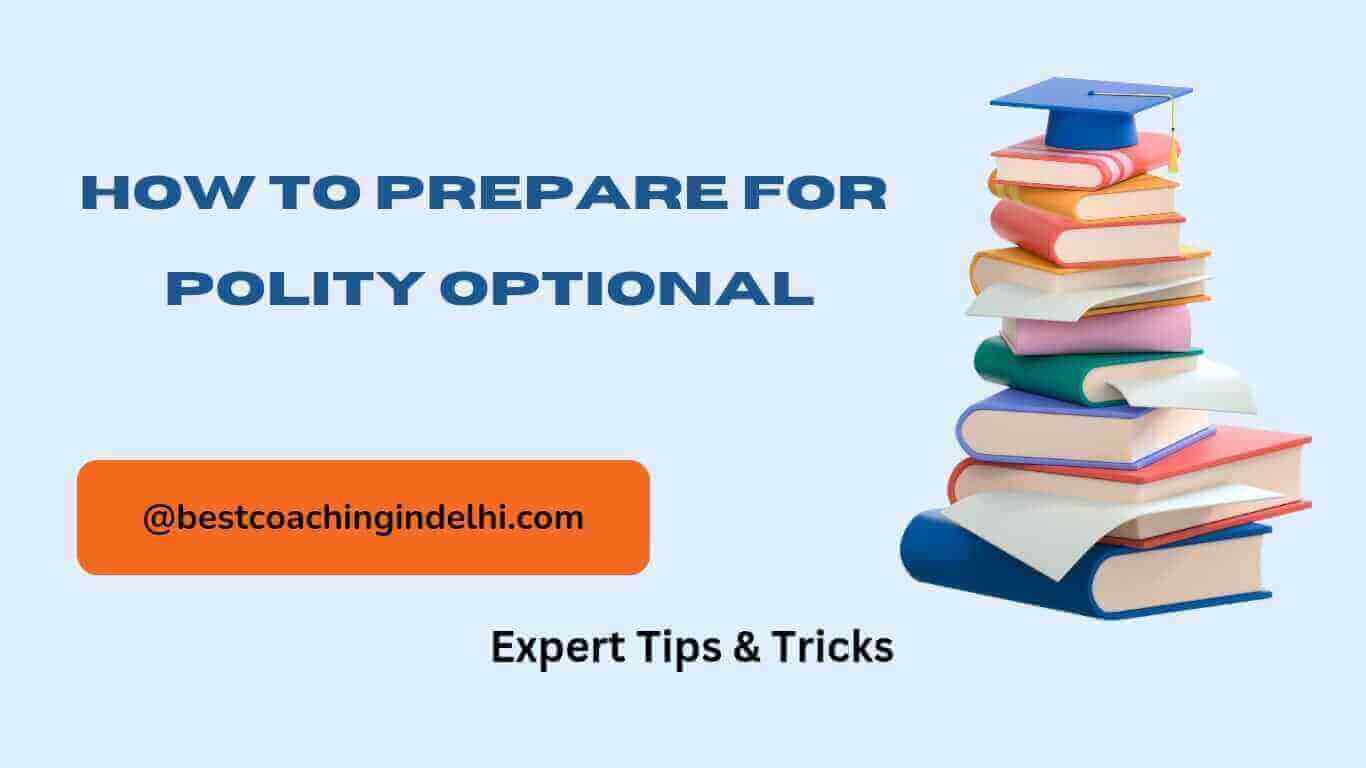
How to prepare Polity Optional for the UPSC exam
Many UPSC candidates choose political science and international relations as elective subjects. It is a fascinating subject that may be explored even by those without a formal education. Among the list of optional subjects offered by the UPSC for the Mains exam, political science is a fairly popular choice. Numerous top performers have chosen political science as an elective. Many IAS applicants choose this subject as their option for a variety of reasons. Prior to choosing an optional, you should, nevertheless, be extremely interested in it. If political science is a subject that interests you, make sure to read the UPSC political science optional curriculum carefully. We go over everything you need to know about political science and international relations as a UPSC main optional in this article.
Benefits of Opting Political Science as Optional Subject
Important Cross-over with GS Syllabus and Essay Paper
The PSIR optional course is a popular choice among candidates for civil services because of the substantial overlap. For instance, the majority of the topics covered by the PSIR optional are Governance, Constitution, Polity, Social Justice, and International Relations, while Indian Politics is covered in the Prelims.
For Students Without a Humanities Background
Another benefit of the PSIR optional is this. This optional course is open to students from all backgrounds since it is not a technical subject. All you would need is the appropriate training partner and the appropriate study material.
Assistance in the final UPSC interview
Your thorough preparation for PSIR will aid your final interview performance because it is a dynamic subject closely related to current events. Candidates can communicate their ideas more persuasively if they have a thorough understanding of political theory.
Important Links:
How Can You Get Ready for Political Science Optional?
Strategy for Paper-I Section A Preparation (Political Theory and Indian Politics)
You should concentrate on finishing the static portion of the syllabus. You will need to build a logical understanding of the thought processes of the thinkers because there are so many to study in Section A, including Plato, Aristotle, Locke, Marx, M. K. Gandhi, etc. Get a conceptual understanding of each subject.
Strategy for Paper-I Section B Preparation (Indian Government and Politics)
This is the part of the exam that most closely resembles the GS Paper 2 of the UPSC Mains. Therefore, using sources like M. Laxmikanth’s books and others can aid in effective communication.
To make your replies more persuasive, concentrate on the second ARC recommendation and incorporate statements from political experts like Atul Kohli, Ramchandra Guha, Christophe Jaffrrelot, etc.
Strategy for Paper-2 Section A Preparation
This paper, like paper 1, can be divided into two pieces. The second part focuses primarily on world politics.
Section A covers comparative and international politics. To achieve high grades in this section, students should use a few web sources. Since the second paper primarily addresses international politics, you should stay current on current international affairs and diplomacy. Additionally, strong connections between static and dynamic events will help you perform well in this part. Knowing what motivates the actors’ activities is a useful method to comprehend international politics. For instance, the Complex Interdependence model may have contributed to India and China’s ability to resolve the Doklam problem (which is the existence of conflict and cooperation at the same time).
Strategy for Paper-2 Section B Preparation
India’s interactions with the outside world are covered in Section B of Paper II. Of all the passages in this optional, this one is the most lively. You’ll need to study some fundamental material as well as newspapers and online sources concurrently to complete this. You could cite RSTV debates like Big Picture and India’s World for this section, as they offer insightful discussions on subjects pertinent to this thesis
This section focuses a lot on current events. You must thoroughly understand how India interacts with other nations, including China, the United States, and of course, its neighbours. You should also read about the relations between the major world powers, such as those between the United States and China, North Korea, and the Arab world and Israel. The various regional organisations, including BRICS, NATO, SAARC, SCO, and others, should be properly discussed. By supplementing the answers with ideas from Section A such as the Security Dilemma, Deterrence, and Balance of Power, the answers could gain validity.
Conclusion
Taking PSIR as an optional could help you pass the civil services test if you approach it strategically and deliberately. The Four Cs—Compare, Criticise, Contemporary, and Conclude—will help you make your responses more impactful and compelling. The dots may be more useful for this optional in addition to the interlinking and regular answer writing practice. Political science test prep materials and class notes should be carefully chosen because they can waste your time and lead you astray.
In this sense, the GS Score PSIR Test series and class notes can really make a difference.
Related Source: UPSC SELECTION PROCESS, Political Science and International Relations Optional Syllabus
